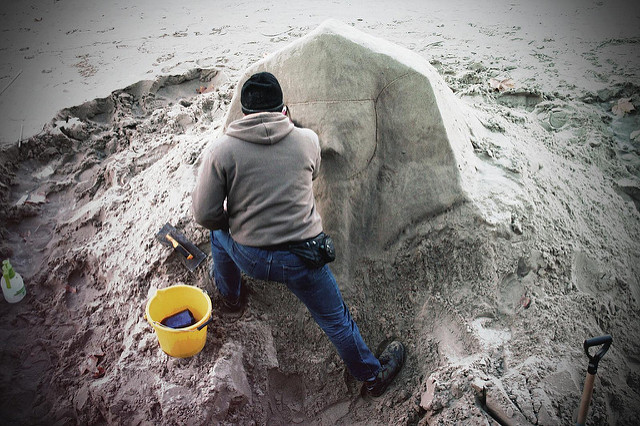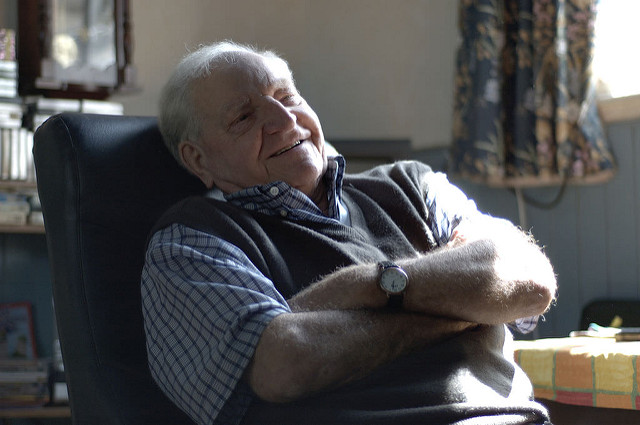Unlock the Magic in Your Story Now
Get the Free 20 questions to Ask Before Launching Your Idea workbook when you sign up for occasional updates.
Get the Free 20 questions to Ask Before Launching Your Idea workbook when you sign up for occasional updates.
Articles filed in: Success
Another Time
 During a high-intensity workout, the trainer reminds the athlete to treat every set as if it were the last. To train as if this was the only sixty seconds, he would cycle that day. In that moment, with that mindset he increases his effort, his performance intensifies and that changes his results.
During a high-intensity workout, the trainer reminds the athlete to treat every set as if it were the last. To train as if this was the only sixty seconds, he would cycle that day. In that moment, with that mindset he increases his effort, his performance intensifies and that changes his results.
We often presume we will have time to do something over. That there will be another time to do our best work. Next time we’ll make more effort or do it better. What’s stopping us from doing it the best way we know how this time? If it’s worth doing why not act as if there won’t be another time?
It turns out that our results are determined by the little things we chose not to do each and every time, more than by the big thing we once did.
Image by Will
To Do Or Not To Do
 We wake every day with solid ideas and imperfect plans.
We wake every day with solid ideas and imperfect plans.
And yet every day we stall.
We blame time.
We await readiness or motivation, or both.
We rationalise about tomorrow being better.
We make assumptions about what it takes to be good enough.
We allow doubt and uncertainty to take hold.
We wait. Forgetting that every unrealised opportunity hinged on the thing we decided not to do.
We must commit to acting when we can, while we can, because we can.
Image by Jon Nicholls
The Tyranny Of Checking
 There are jobs, and there is work that relies on the professionals checking. We want our surgeons, pilots and firefighters to check and double check. That isn’t the kind of checking most of us do now. It seems that we’ve unintentionally made a career out of checking. We spend many hours a day checking notifications, newsfeeds, incoming and emails, retweets, likes and comment threads.
There are jobs, and there is work that relies on the professionals checking. We want our surgeons, pilots and firefighters to check and double check. That isn’t the kind of checking most of us do now. It seems that we’ve unintentionally made a career out of checking. We spend many hours a day checking notifications, newsfeeds, incoming and emails, retweets, likes and comment threads.
What’s the point of all this checking? What are we looking for? What are we measuring? How is it helping us? How many times has checking uncovered a genuine emergency that needed an immediate response? We all know the answer.
While these micro-moments of distraction may seem inconsequential, we do pay the price for choosing to check. Our progress, contribution, and impact will always be measured by what we said and did, not by knowing exactly who said and did what. We differentiate ourselves by doing.
We didn’t get to where we are today by looking over our digital shoulder. We got here by paying attention to where we wanted to go.
Image byIvan Rigamonti
The Value Of Goals And Outcomes
 We tend to think of goals and outcomes as one and the same. They’re not.
We tend to think of goals and outcomes as one and the same. They’re not.
Let’s say your goal is to run a marathon. Crossing the line at the end of the twenty-sixth mile is your goal. But the effect of the actions you take by trying to achieve that goal is worth more than having run the race.
Getting ‘there’ feels good. But never discount the value of what you’re learning as you go.
Image by Shutter Runner
Effort, Performance And Joy
 The indoor bikes at my gym have a display monitor on the front. The monitor is designed to show you how much effort you’re putting into your workout. In theory the monitor helps you to get better results. You can see how the combination of your speed and resistance increases your power output. You can measure the distance you’ve travelled and the calories you’ve burned.
The indoor bikes at my gym have a display monitor on the front. The monitor is designed to show you how much effort you’re putting into your workout. In theory the monitor helps you to get better results. You can see how the combination of your speed and resistance increases your power output. You can measure the distance you’ve travelled and the calories you’ve burned.
A constant awareness of the numbers is supposed to help you improve your performance. But I’ve found that it sometimes has the opposite effect. It’s hard not to just stare at those numbers for the whole time you’re on the bike. When you focus mainly on the numbers, you tell yourself a story about how well you’re doing compared to yesterday. You’re not thinking about the aggregate measurement of your performance over time or about the benefits of showing up day after day—week in, week out. You’re simply trying to increase your effort. You’re thin-slicing in the most unhelpful way. And you’re taking all of the joy out of working out.
Something surprising happens when you cover the monitor, avoid looking at the numbers. Suddenly you’re more aware of your body and how it’s capable of responding. You’re not limited by your perception of yesterday’s performance. You don’t have a mental ceiling about what’s possible. And so you not only achieve better results, you enjoy the ride.
We tend to believe the secret to improving performance is to pay attention to our output—that prioritising the numbers is what makes them go up. The numbers are just one sign that you’re on the right track. There are a hundred different ways you can improve them over time. But staring straight at the numbers and lamenting about what you’re not achieving right this second isn’t one of them.
Journeying is the act of travelling from one place to another—not a moment of arrival.
You get there by being committed to the journey.
Image by R Reeve
Priorities And Metrics
 We often default to using narrow parameters to qualify worthiness or quantify excellence. We focus on a company’s revenue or an entrepreneur’s net worth, count the number of books an author sells or followers an influencer amasses.
We often default to using narrow parameters to qualify worthiness or quantify excellence. We focus on a company’s revenue or an entrepreneur’s net worth, count the number of books an author sells or followers an influencer amasses.
What we choose to measure has a direct impact on what we then prioritise. And of course, what we prioritise determines the kind of companies and communities we build.
Better then, to set our priorities first and metrics later.
Image by Andrew
A Question Of Pride
filed in Success
 Like most of their friends and neighbours from big Irish-Catholic families, my grandparents didn’t have the luxury of an education. They were not bookish, in fact, they were barely literate. They couldn’t teach me much about history or science. But they taught me a lot about pride.
Like most of their friends and neighbours from big Irish-Catholic families, my grandparents didn’t have the luxury of an education. They were not bookish, in fact, they were barely literate. They couldn’t teach me much about history or science. But they taught me a lot about pride.
My grandparents may not have had status, but they did have a place in their community. They valued fairness and doing the right thing by their neighbours. Their door was always open—kettle always on. They shared the little they had. They worked through their problems, knowing they didn’t have the all the right answers. They were not afraid of failure or a hard day’s work. They proudly sent their children to school in clean clothes with full bellies. And while their aspirations might seem small by today’s standards, they were huge by theirs—at a time when people lived from hand-to-mouth. Week-to-week. Brown envelope to brown envelope. I think my grandparents, and yours too could teach us a lot about how to live and work today.
Our grandparents would probably tell us to stop deferring to others (and Google) to find the answer and to start reflecting on what was right by, and for us? They would ask us why we’d stopped making fewer decisions that spoke to our heart. They would question our belief that success could be plotted on a graph with a neverending upward trajectory. They would wonder when it became fashionable to think that pride was just a vice that would surely come before a fall.
Growing up, I was lucky to be surrounded by people whose metric of success was doing what they were proud to have done. I can’t think of a better way for us to measure what matters.
Image by Alastair Green
The Power Of Identity In A Competitive World
 Nobody who read the pre-match reports or the post-match statistics would have predicted a one-all draw. Iceland, a country with a population of 334,000, was fielding a team of semi-professional players, in their World Cup debut against Argentina, one of the world’s best footballing nations. There was no way Iceland could compete with the experience and skill of the Argentinian team.
Nobody who read the pre-match reports or the post-match statistics would have predicted a one-all draw. Iceland, a country with a population of 334,000, was fielding a team of semi-professional players, in their World Cup debut against Argentina, one of the world’s best footballing nations. There was no way Iceland could compete with the experience and skill of the Argentinian team.
During the game, Argentina had 78% of the possession and took twenty-seven shots at goal. Iceland had only eight. On paper, the dominant team—which also happens to be captained by this year’s world-leading goal scorer, should have won by a mile. Iceland secured an unexpected draw, not by trying to beat their opponents at the Argentian game, but by playing their own game.
The Iceland manager, Heimir Hallgrimsson, summed up his team’s strategy like this:
“We know how we can win football matches. It is just a fact that Argentina have superior individuals with superior skills and if we go one-on-one with them you don’t need to ask who will win the game. We have to play in a special way and we have a clear identity.”
Iceland was never going to win by competing like Argentina.
They triumphed by playing like Iceland.
When we get caught up competing, we get caught out playing catch up.
It turns out you don’t need to compete when you know who you are.
Statistics from the BBC. Image by Thomas Leth-Olsen
What Successful Companies Do
 Just one thing.
Just one thing.
Successful companies help people do things they want to do, so they can be who they want to be.
What do the people you serve want to do?
How can you help them to be who they want to be?
Image by Tim Dennell
The Sure Thing
 Before we create a product, design a service or build a business we want to be certain the idea will fly. We want to know for sure that if we build it, people will come.
Before we create a product, design a service or build a business we want to be certain the idea will fly. We want to know for sure that if we build it, people will come.
If we only did the things we were certain would work, we’d never create anything original.
Originality is a leap of faith and success is unpredictable.
Certainty comes with the benefit of hindsight.
Bestsellers are always a surprise.
The best we can do is have the courage to begin before we’re certain.
Taking a risk is less risky than doing nothing at all.
Image by Roberto Trombetta